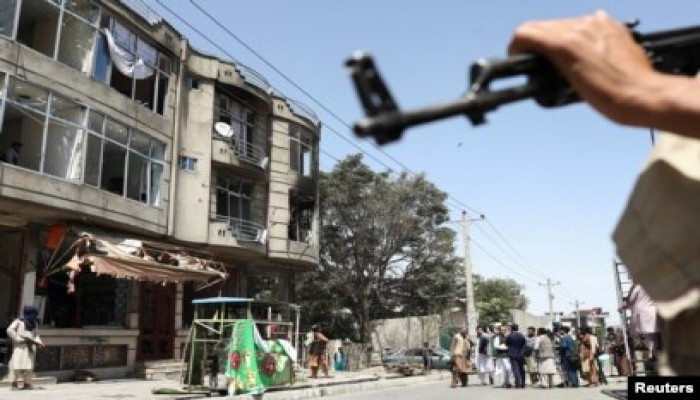Taliban imposed restrictions on Afghan Hindu and Sikh minorities
- In Reports
- 07:17 PM, Aug 26, 2023
- Myind Staff
As Kabul succumbed to the Taliban in 2021, apprehensions emerged over the potential disappearance of Afghanistan's diminutive non-Muslim communities. As per recent reports, two years later, those concerns are materializing.
Since the Taliban's resurgence, the plight of Afghanistan's Sikh and Hindu minorities has intensified. As the last-known Jew fled the nation shortly after the Taliban's assumption of power, the Sikh and Hindu populations have reportedly dwindled to a mere handful of families, as detailed by RFE/RL.
While under Taliban rule, the Sikh and Hindu communities have encountered stringent constraints, encompassing limitations on their appearance and stringent bans on publicly observing their religious holidays. These repressive measures have coerced many individuals to seek refuge abroad, as recounted by RFE/RL. This dire situation has compelled a substantial portion of these communities to leave their homeland behind.
"I cannot go anywhere freely," Fari Kaur, one of the last remaining Sikhs in the capital, Kabul said.
"When I go out, I'm forced to dress like a Muslim so that I can't be identified as a Sikh," she said, in reference to the Taliban's order that all women must wear the all-encompassing burqa or niqab.
Kaur's father lost his life in a suicide attack that targeted Sikhs and Hindus in the eastern city of Jalalabad. This tragic incident compelled nearly 1,500 Sikhs to depart from Afghanistan, including Kaur's mother and sisters.
Despite the exodus, Kaur took a different path. She made a resolute decision to remain in Kabul, driven by her father's aspiration that she completes her education. This poignant detail is highlighted in a report by RFE/RL.
Tragedy struck once again in March 2020 when a Sikh temple in Kabul was stormed by militants from the Islamic State-Khorasan (IS-K), resulting in the loss of 25 worshippers' lives. In the wake of this violent incident, a majority of the remaining minority members chose to leave Afghanistan.
However, Kaur's determination to stay persisted. Now, over two years following the Taliban's seizure of power, she finds herself compelled to change course. The report elaborates that the constraints on religious freedom imposed by the militants have left her with no alternative but to seek refuge in another country.
"We have not celebrated our key festivals since the Taliban returned to power," she said.
"We have very few community members left behind in Afghanistan. We cannot even look after our temples."
In the 1980s, Afghanistan was home to a thriving Hindu and Sikh population, with estimates reaching up to 100,000.
However, the Taliban's restrictive policies have compelled an increasing number of Sikhs and Hindus to consider leaving Afghanistan, as reported by RFE/RL. Niala Mohammad, Director of Policy and Strategy at the nonprofit Muslim Public Affairs Council in Washington, noted that the situation for religious minorities in Afghanistan- Hindus, Sikhs, Bahai's, Christians, Ahmadis, and Shia Muslims, has significantly worsened under Taliban rule.
"The situation continues to deteriorate as political extremist factions that claim to represent Islam, such as the Taliban, ascend to power in the region," said Mohammad, who was previously the South Asia analyst for the US Commission on International Religious Freedom.
"This exodus of diverse religious groups has left a void in the country's social fabric."
Image source: IANS







Comments